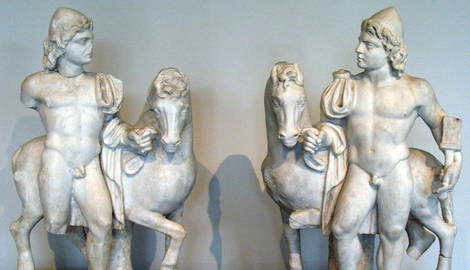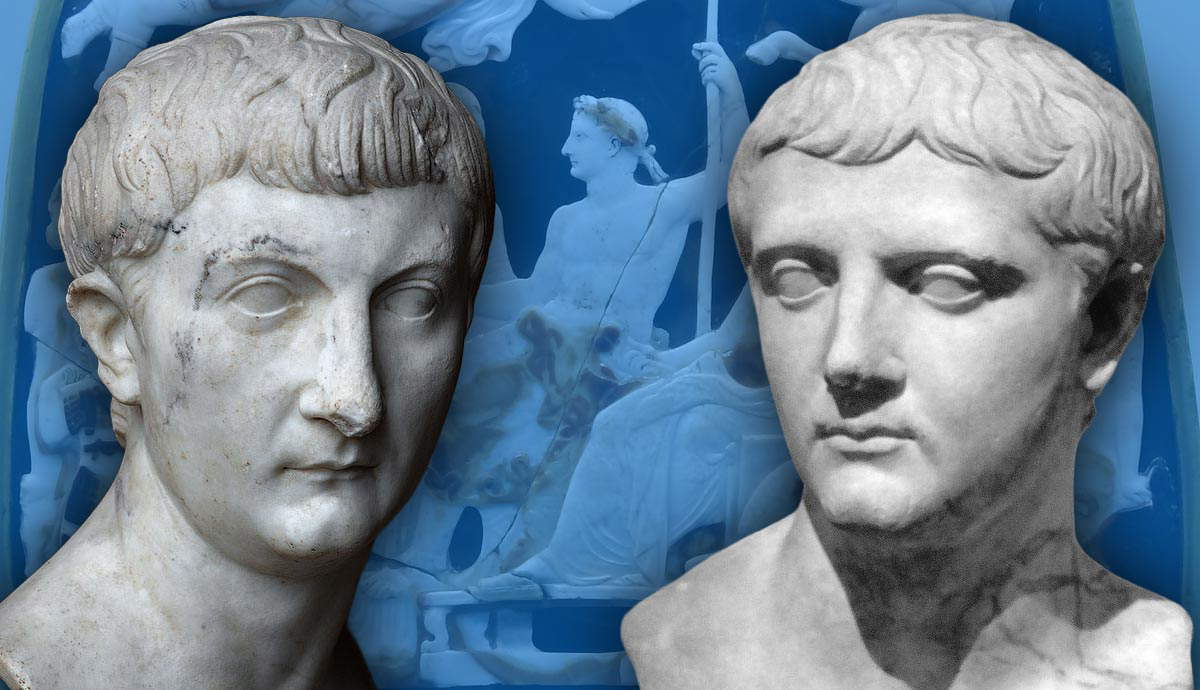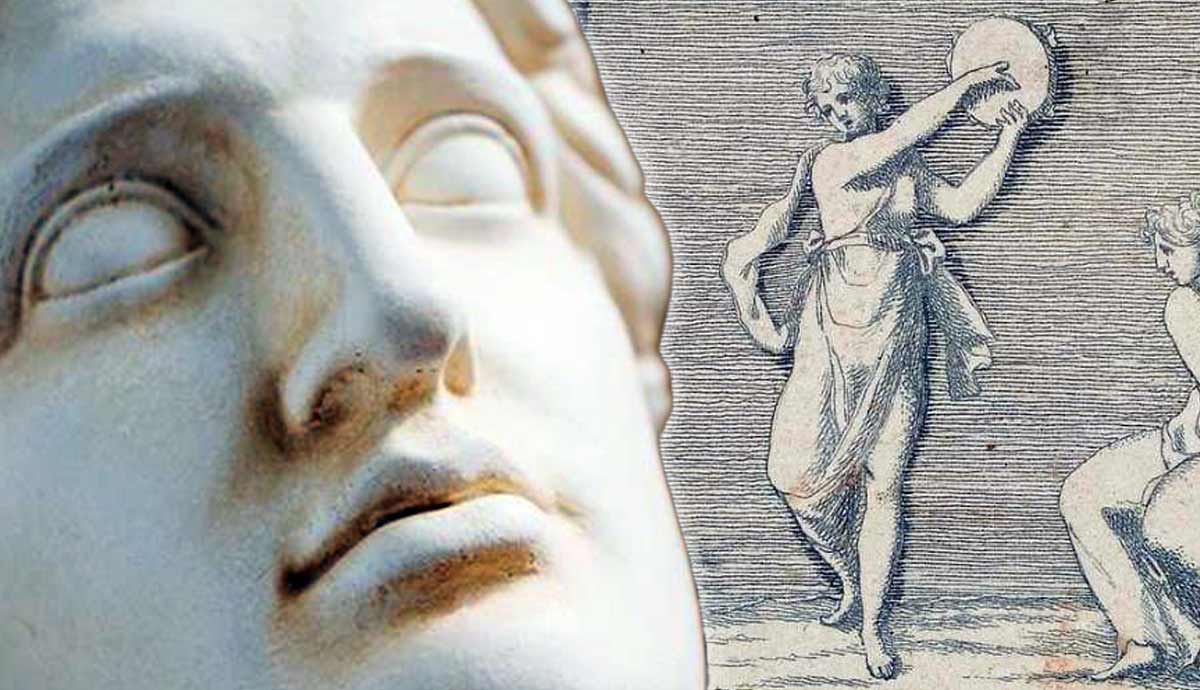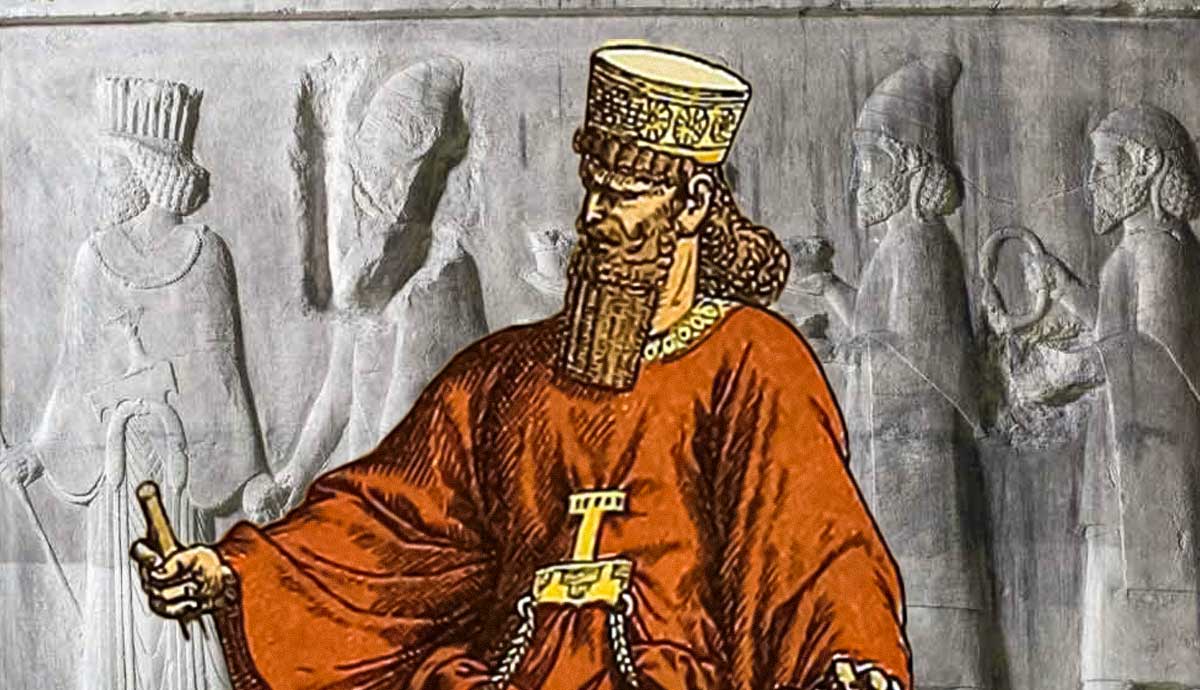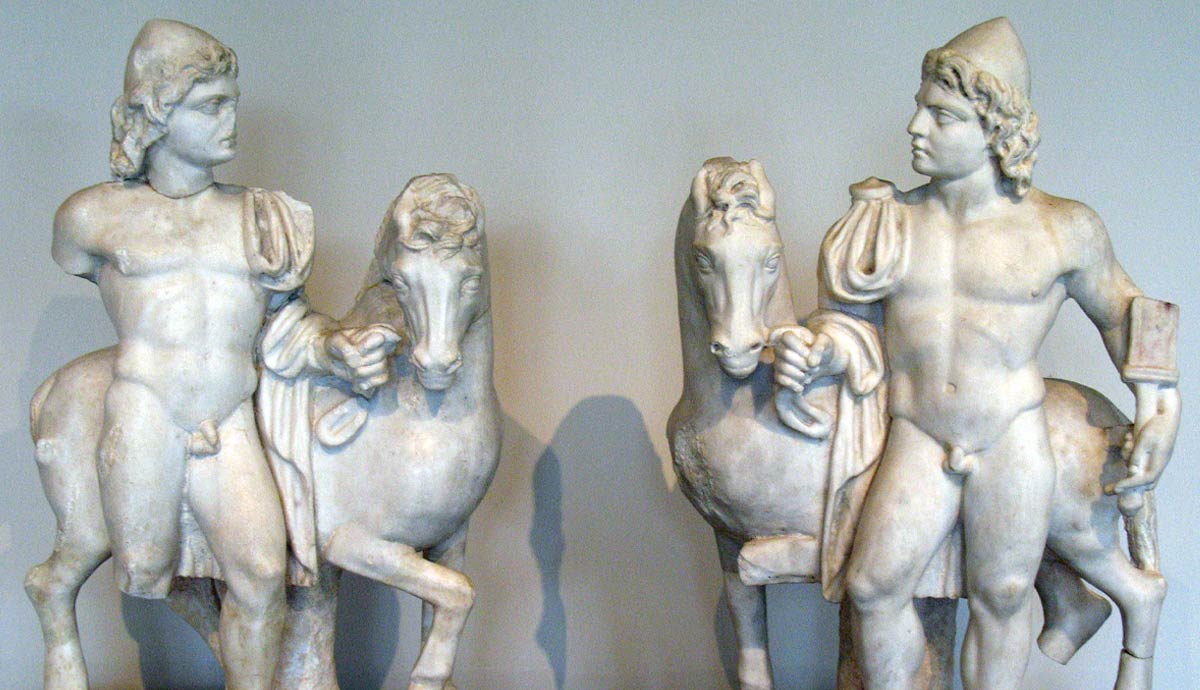
Augustus infamously had a difficult time securing an heir. Each man he chose died before his time until the old emperor had to “settle” for his stepson Tiberius. Augustus’s favorite heirs seem to have been his grandsons Lucius and Gaius Caesar, whom he groomed from infancy, but both died as young men.
The boys were consistently presented as a pair of heirs, who, together, would ensure the continuity and prosperity of Rome in the future. They were sometimes associated with the Dioscuri, semi-divine half-brothers Castor and Pollux, sons of Zeus/Jupiter, considered the perfect example of fraternal harmony. However, they were not the only potential heirs of Augustus associated with the Dioscuri.
Augustus: Search for an Heir

From the moment Octavian Caesar made himself the undisputed ruler of Rome, following his defeat of Mark Antony at the Battle of Actium in 31 BCE and his assumption of the name Augustus in 29 BCE, he was in search of an heir. While imperial rule was new to Rome, hereditary succession was part of Roman DNA. Aristocratic families groomed their children to follow in their footsteps as statesmen and generals to carry on the family name and legacy. Augustus himself was adopted by his great uncle Julius Caesar. It was Caesar’s money and influence, which Octavian inherited, that enabled Augustus’s triumph.
In his search for an heir, Augustus first settled on the son of his sister Octavia, Marcus Claudius Marcellus, his closest male relative. He adopted Marcellus in 25 BCE, when he was just 17 years old, and married him to his daughter Julia, making the family connection closer. Marcellus served as a military tribune in 25 BCE and was given the right to stand for aedile in 23 BCE, ten years before the legal age. In his Aeneid, Virgil associated Marcellus with his ancestor of the same name who fought during the Second Punic War, whom Virgil called “the sword of Rome,” giving the same praise to Marcellus by association. But Marcellus died of a fever in 23 BCE.

This probably increased Augustus’s concern about finding an heir, especially since he had also been ill in 23 BCE. But this time around, he looked for a more experienced set of hands. In 21 BCE, Augustus had his friend and righthand man Agrippa divorce his wife to marry Julia, effectively making Agrippa his successor. He granted Agrippa powers that were almost as extensive as his own, including proconsular imperium, granting him consular authority in the provinces, and tribunicia potestas, giving Agrippa civil power in the city of Rome. He was given command of Rome’s eastern provinces. Unfortunately, Agrippa died while on campaign in 12 BCE.
Enter Gaius and Lucius Caesar

In 20 BCE, Julia and Agrippa had their first son, Gaius Caesar. He was followed by a daughter Julia in 19 BCE, and then another boy, Lucius Caesar, in 17 BCE. They would later have a daughter Agrippina in 14 BCE and another son, Agrippa Postumus, born in 12 BCE after his father’s death.
Augustus adopted both Gaius and Lucius Caesar as his own sons in 17 BCE, shortly after Lucius was born, making them his personal heirs. This meant that they would inherit Augustus’s personal fortune and clients, which effectively made the infants the heirs to imperial power. Notably, this was over older and more qualified candidates, such as Augustus’s stepsons Tiberius and Drusus.
Augustus celebrated the adoption as part of the Ludi Seculares, held every 110 years, in 17 BCE. It was suggestive that this marked a new era of peace, the Pax Romana, with Augustus’s dynasty providing stability. He celebrated the same themes on the Ara Pacis, an altar celebrating Augustan peace, constructed in 13 BCE. The processional scenes feature many members of Augustus’s family, including Agrippa, Tiberius, and Drusus, and probably the youths Gaius and Lucius Caesar, though that portion is badly damaged.
Augustus reportedly took charge of Gaius and Lucius’s education. According to Suetonius, he taught them how to swim, and read, and even taught them how to imitate his own handwriting. However, exactly how involved Augustus was in their education is unclear, since Julia and the children traveled with Agrippa to Syria while he was in command of the eastern provinces. We can only be sure that Gaius and Lucius returned to Rome in 13 BCE when Gaius, then seven, participated in the Trojan Games with other patrician youths.
Princeps Iuventutis

Despite promoting both boys as his heirs, Augustus was focused on Gaius as the elder. He was given a military education, accompanying Tiberius on a campaign along the Rhine in 8 BCE when he was still just 12 years old.
Back in Rome in 6 BCE, the 14-year-old was made consul elect, with the position reserved for the year he would be 20. This would see him skipping several of the political offices considered essential prior to the consulship according to the Roman cursus honorum. In 5 BCE, he came of military age and assumed the toga virilis, which was an indication of manhood. In the same year, he participated in the annual procession of Roman Knights, and they named him princeps iuventutis, an honorific traditionally bestowed on the youths chosen to lead the procession. Over time, this began to be used to indicate young heirs to imperial power, but for Gaius, the title was novel. The same year Gaius joined the college of pontifices (priests) and was given permission to attend Senate meetings and be present alongside the Senate at spectacles and banquets.
Lucius received the same honors in 2 BCE, when he was 15, receiving the toga virilis, the title princeps iuventutis, and made consul elect for the year he would be 19. He joined a different priestly college, the augures, and Augustus gave 60 denarii to every Roman citizen to celebrate the occasion. In 2 BCE, Gaius and Lucius were given the authority to consecrate buildings in Rome, which allowed them to make themselves patrons of the city, as Augustus had done.
Why Did Augustus Promote the Youths?

But while Augustus was honoring Gaius and Lucius as future generals and statesmen as they grew, they were too young to play a significant role in the imperial administration. For this, he had to turn to his stepsons Tiberius and Drusus, the sons of his wife Livia from her previous marriage. These young men, born in 42 and 38 BCE respectively, were Rome’s most decorated generals following the death of Agrippa. Between 16 BCE and 7 BCE, they led the expansion of the Roman Empire along the Danube and into Germania.

Drusus was elected consul in 9 BCE but died shortly after in a riding accident. Posthumously, Augustus had him awarded Rome’s highest and rarest military honor, known as spolia opima, which meant that he took personal possession of the arms and riches he won from an enemy general in battle. This was less showy but considered a greater honor than a triumph. Augustus seems to have put an end to the Republican practice of celebrating triumphs in Rome for successful generals. Probably, on the one hand, he did not want generals from outside his family to gain that kind of attention in Rome, and on the other hand, he didn’t want his family accused of excess.
In the aftermath of Drusus’s death, Augustus softened his stance on triumphs and allowed Tiberius to celebrate a modest triumph in 7 BCE. In 6 BCE, he began to share tribunicna potestas with Augustus and, just like Agrippa, was offered command in the east. Therefore, at this moment, Augustus seems to have established that if he died that day, Tiberius would be his successor, not the young Gaius and Lucius.
But in 6 BCE, before taking up the eastern command, Tiberius retired from public life to live in Rhodes. It is unclear from the sources whether Tiberius retired in defiance of Augustus’s wishes, or whether he was pushed to make way for Gaius and Lucius Caesar. Regardless, it was only after Tiberius removed himself from the equation that the spotlight on Gaius and Lucius was intensified.
Gaius the General

By 2 BCE, the eastern empire needed attention and Augustus decided to deploy an army to Syria to invade and retake Armenia, which was being threatened by the Parthians. He sent an 18-year-old Gaius Caesar as his representative in 1 BCE. The inexperienced youth was accompanied by more experienced men, including Marcus Lollius, a political enemy of Tiberius, Velleius Paterculus, the historian, Lucius Domitius Ahenobarbus, the grandfather of the future emperor Nero, and the future Praetorian Prefect Sejanus.
En route, the troop reportedly met with Tiberius, Gaius’s stepfather since he was forced to marry Julia following Agrippa’s death, another sign that he was the heir apparent. But Tiberius abandoned Julia when he abandoned Rome for Rhodes in 6 BCE. The two divorced in 2 BCE when Julia was arrested and exiled for adultery and treason. The meeting between Gaius and Tiberius was reportedly cold, as would be understandable in the circumstances. According to Suetonius, Lollius even offered to decapitate Tiberius for Gaius.
In 1 CE, while now in the east, in Syria, Gaius finally took up his consulship in absentia. He was simultaneously preparing the army to invade Armenia and negotiating with the Parthian king to avoid open war. By 2 CE, those negotiations would eventually be successful, with the Parthians abandoning their claim to Armenia.
Despite the success of the negotiations, there were still revolts in Armenia, and in 2 CE, Gaius took his army in. In September of that year, he met to negotiate with the rebel leader, but it turned out to be a trap. He was wounded and had to be carried away, but his spirits weren’t broken. He crushed the rebellion and completed the pacification of Armenia.
Deaths of Gaius and Lucius Caesar

While Gaius was in the east, Lucius was sent to Hispania to complete his military training. But his time in the field was short-lived. He fell ill and died in Gaul on Augustus 2, 2 CE. The details of his illness do not survive, though some sources suggest that Livia may have had a hand in the deaths to clear the way for Tiberius. But Livia was far away in Rome, and Tiberius did not seem interested in power.
While Gaius did not initially seem to have been badly injured in Armenia, by 3 CE, his wound was affecting him. The youth of just 22 resigned his command and retired to Syria. The sources suggest that he was not of a naturally robust constitution, much like Augustus, and that the injury impaired both his body and mind. He was probably also greatly affected by his brother’s death. Gaius wrote a letter to Augustus saying that he no longer wanted to take part in public life and planned to retire in Syria, not unlike Tiberius. Augustus convinced him to return to Italy, but he died on the return journey on February 21, 4 CE at Limyra. A cenotaph was erected there in his honor.
The deceased heirs were greatly mourned. The Senate vowed them many honors, including displaying the golden spears and shields they received as gifts from the Equestrian order in the Senate house. Tiberius was recalled to Rome and became Augustus’s undisputed heir, becoming emperor and having Augustus deified in 14 CE.
Gaius and Lucius as the Dioscuri

According to many modern scholars, Gaius and Lucius Caesar were associated with the Dioscuri both during their lives and after their deaths.
In Greek and Roman religion, Castor and Pollux were two half-brothers, known as the Dioscuri, who were considered the epitome of brotherly love and devotion. They were both sons of Leda—Castor by Tyndareus, the king of Sparta, and Pollux by Zeus, who seduced Leda in the form of a swan. Despite having different fathers, they were born together as twins, just like their twin sisters, Clytemnestra, daughter of Tyndareus, and Helen of Troy, daughter of Zeus.
The two men grew up to be heroes. They joined Jason and the Argonauts on their expedition and Pollux won a boxing competition with King Amycus of the Bebryces. Upon their return to Greece, they helped Jason destroy the city of Iolcus. When the beautiful Helen was abducted for the first time by Thesus of Attica they invaded his kingdom to rescue her.
They did not participate in the battle of Troy because they had already met their mortal end. The pair were in a fight to the death with another pair of twin brothers. Castor was mortally wounded, and Pollux was only saved when his father Zeus smote his opponent. Pollux was given a choice. He could ascend to Olympus and live among the gods, or he could give half his immortality to his mortal brother. He chose the latter. Consequently, the twins split their time between Olympus and Hades. They also became the two brightest stars in the Gemini constellation.

The pair were worshiped throughout the Greco-Roman world as heroes and symbols of piety. According to legend, the Romans believed that they helped them in the Battle of Lake Regillus as divine patrons, and consequently, a temple was dedicated to them in the forum in the 5th century BCE. They were believed to have assisted the Romans in many subsequent battles.
The heroic duo became closely associated with the Equestrian class, the knighted class in Roman society. On the feast day of the Dioscuri, thousands of equestrians paraded through Rome on their steeds and in full military attire. They would often choose youths to lead the procession, whom they called princeps iuventutis. It was the awarding of this title to Gaius and Lucius Caesar that started the association with the Dioscuri.
Coins minted in Lugdunum around 2 BCE refer to this honor and connection. Minted to pay the troops, the reverse of the coins shows Gaius and Lucius with the swords and shields they were given as part of their participation in the Equestrian parade. The idea also seems to have spread throughout the Empire. A group of imperial portraits found in Corinth seems to show an older, togate Augustus with Gaius and Lucius as nude heroic figures, which has been assumed to represent them as the Dioscuri. Similarly, at Pisa, they were posthumously awarded Equestrian statues, which may be a nod to the idea of them as Castor and Pollux.
Competing Dioscuri

While scholars have made much of the association between Gaius and Lucius and the Dioscuri, the evidence that they were closely connected with the gods is minimal. Moreover, there is a case to be made that two other brotherly Augustan heirs were more closely associated with the gods: Tiberius and Drusus.
The temple of the Dioscuri was destroyed by fire in 14 BCE, and in 7 BCE, as part of his triumph, Tiberius asked for permission to rebuild and rededicate the temple in the name of himself and his now-deceased brother Drusus, using the spoils that both had won in Germany. Permission was granted, but due to his retirement, the temple was not completed and dedicated until 6 CE, after the deaths of Drusus, Gaius, and Lucius.
There is evidence that before this, Tiberius and Drusus may already have been associated with the Dioscuri. According to Cassius Dio, when Drusus died there were portents. Specifically, two youths were seen riding through the camp, and shooting stars were seen in the sky. It is possible that when Gaius and Lucius took over as Augustus’s heirs, they also took over the association with the Dioscuri.
